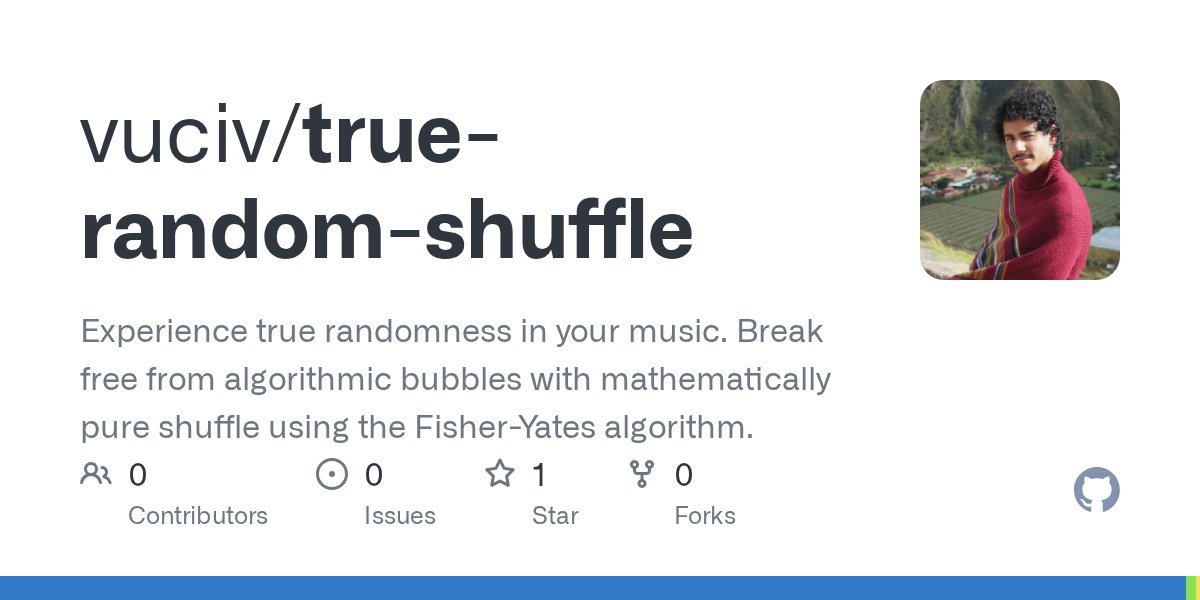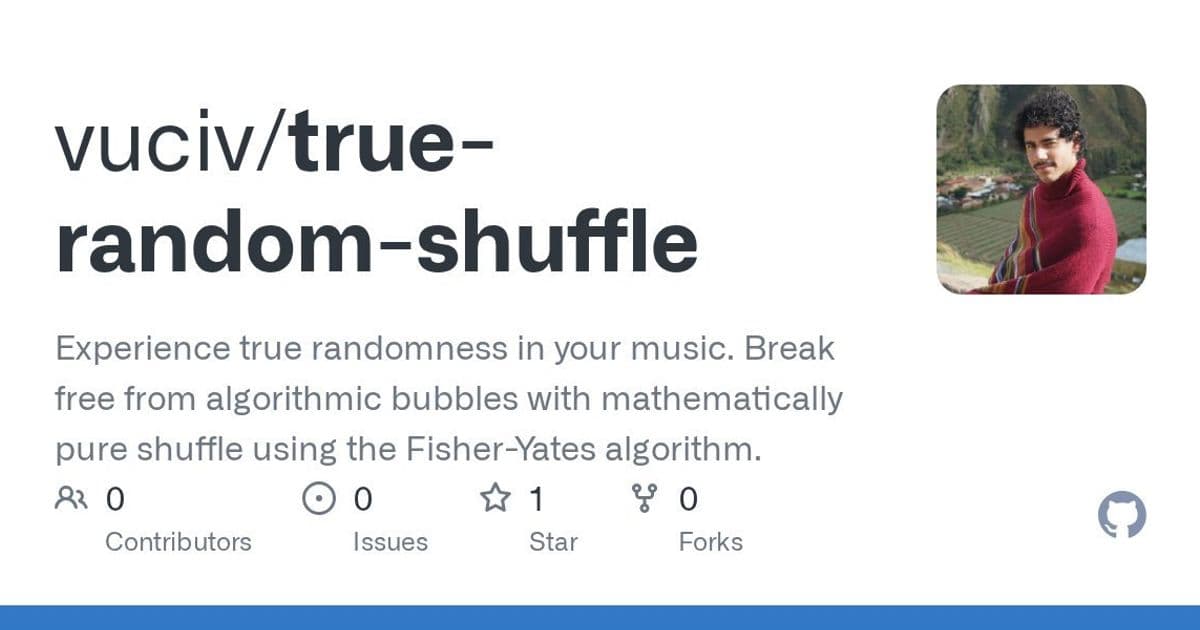An open-source project leverages the Fisher-Yates algorithm and cryptographically secure randomness to deliver mathematically pure music shuffling, challenging streaming platforms' engagement-optimized playlists. Built with React Native and Spotify integration, True Shuffle offers cross-platform liberation from predictable playback patterns.

For decades, music listeners have suspected their shuffle buttons weren't truly random. Streaming algorithms often prioritize engagement over randomness, creating predictable patterns that reinforce listening habits. Enter True Shuffle—an open-source rebellion against algorithmic curation that implements mathematically verifiable randomness using computer science fundamentals.
The Algorithmic Liberation
At its core, True Shuffle employs the Fisher-Yates algorithm, a proven method for unbiased shuffling developed in 1938. Unlike streaming services that weight songs based on popularity or listening history, this approach treats every track equally. The implementation goes further by using cryptographically secure randomness—typically reserved for security applications—to guarantee unpredictable results. As the developer notes:
"True randomness breaks the feedback loops that trap listeners in algorithmic bubbles. This isn't just about shuffle—it's about reclaiming agency in digital experiences."
Technical Architecture
Built with Expo and React Native, the project delivers cross-platform functionality (iOS, Android, Web) while maintaining a single codebase. Key technical components include:
- Spotify Web API integration: OAuth authentication fetches playlists and liked songs
- React Query: Manages data synchronization and caching
- TypeScript: Ensures type safety across the codebase
- Modern UI: Dark-themed interface optimized for discovery
// Simplified Fisher-Yates implementation
function trueShuffle<T>(array: T[]): T[] {
const shuffled = [...array];
for (let i = shuffled.length - 1; i > 0; i--) {
const j = Math.floor(crypto.getRandomValues(new Uint32Array(1))[0] / 4294967296 * (i + 1));
[shuffled[i], shuffled[j]] = [shuffled[j], shuffled[i]];
}
return shuffled;
}
Why This Matters
Beyond music, True Shuffle demonstrates how foundational algorithms can counteract platform-driven behavioral conditioning. For developers, it offers:
- A reference implementation of cryptographic randomization
- Practical Spotify API integration patterns
- Expo deployment strategies for web and mobile
- Open-source MIT licensing for community adaptation
The project's cross-platform deployment—supporting Netlify for web and EAS for mobile—showcases modern development workflows. As algorithmic curation dominates digital experiences, tools like True Shuffle provide both technical blueprints and philosophical counterpoints to engagement-optimized design.
Source: GitHub Repository

Comments
Please log in or register to join the discussion